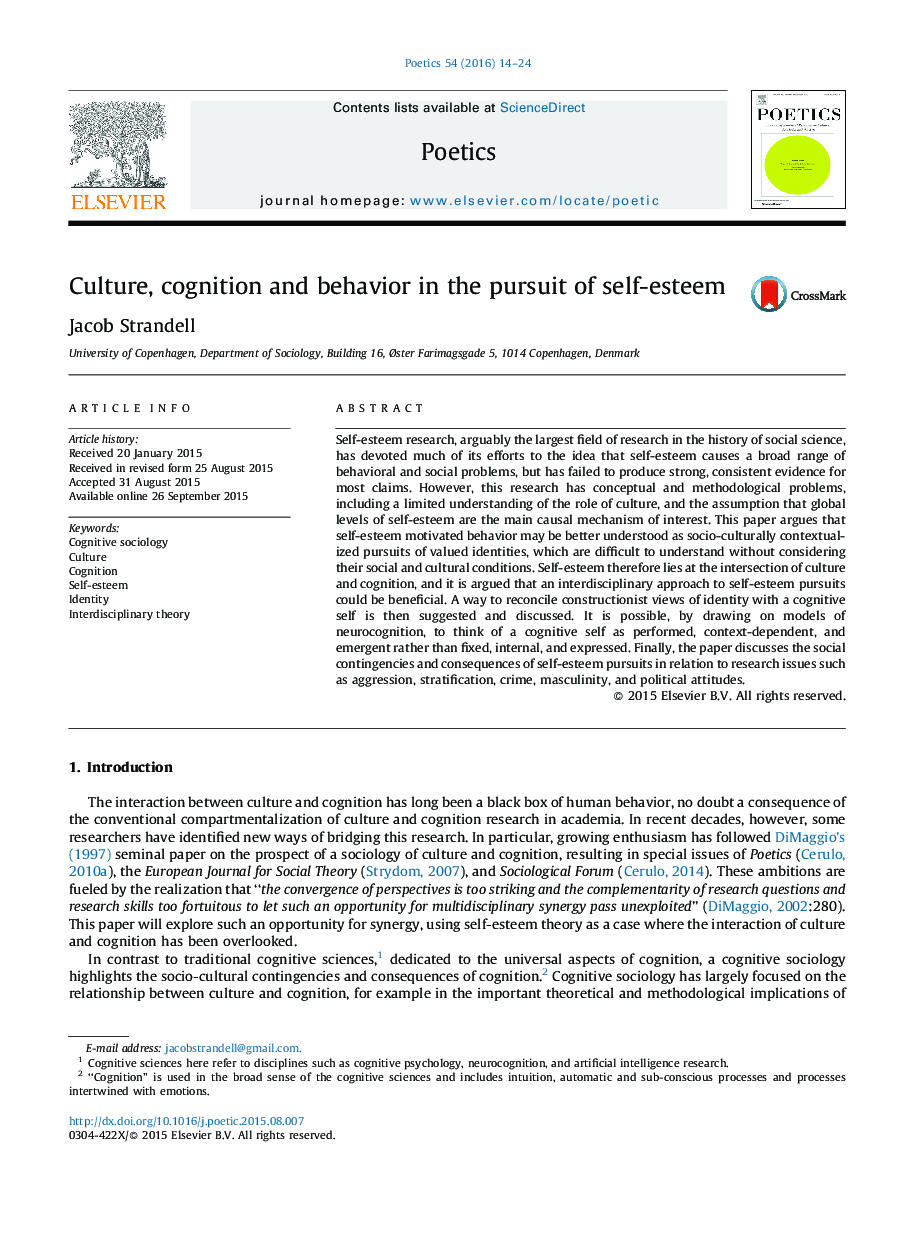| کد مقاله | کد نشریه | سال انتشار | مقاله انگلیسی | نسخه تمام متن |
|---|---|---|---|---|
| 1128246 | 1488765 | 2016 | 11 صفحه PDF | دانلود رایگان |
• Self-esteem research must consider the role of culture.
• Focus should shift from having self-esteem to pursuing self-esteem.
• A way to reconcile constructionist identity and cognitive self is proposed.
• Self-esteem has a range of plausible socio-cultural contingencies and consequences.
• Self-esteem may be involved in many fields of sociological and cultural research.
Self-esteem research, arguably the largest field of research in the history of social science, has devoted much of its efforts to the idea that self-esteem causes a broad range of behavioral and social problems, but has failed to produce strong, consistent evidence for most claims. However, this research has conceptual and methodological problems, including a limited understanding of the role of culture, and the assumption that global levels of self-esteem are the main causal mechanism of interest. This paper argues that self-esteem motivated behavior may be better understood as socio-culturally contextualized pursuits of valued identities, which are difficult to understand without considering their social and cultural conditions. Self-esteem therefore lies at the intersection of culture and cognition, and it is argued that an interdisciplinary approach to self-esteem pursuits could be beneficial. A way to reconcile constructionist views of identity with a cognitive self is then suggested and discussed. It is possible, by drawing on models of neurocognition, to think of a cognitive self as performed, context-dependent, and emergent rather than fixed, internal, and expressed. Finally, the paper discusses the social contingencies and consequences of self-esteem pursuits in relation to research issues such as aggression, stratification, crime, masculinity, and political attitudes.
Journal: Poetics - Volume 54, February 2016, Pages 14-24
